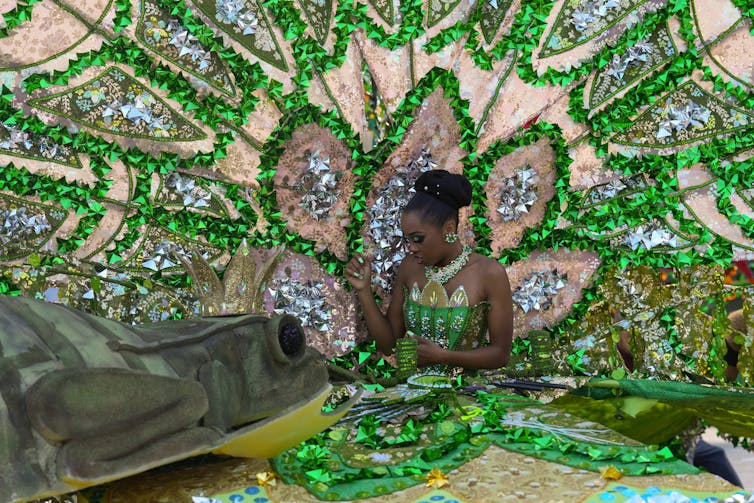Hyacinth Simpson, Toronto Metropolitan University
Every summer Toronto plays host to revellers and spectators, visitors and locals, for one of the biggest events of the season: the Toronto Caribbean Carnival (TCC). Last year’s carnival brought almost two million people and just under half a billion dollars to the city, and similar if not greater numbers are expected this year.
Under the theme of “Diversity and Culture Live Here,” the Festival Management Committee that oversees carnival events is encouraging everyone to join in the fun. Many see TCC activities, especially the culminating Grand Parade, as an opportunity to go full throttle with the bacchanal. And carnival is about play and pleasure and partying.
But beyond the fun and sparkly costumes are some real problems around the exploitation of the culture of a community that usually doesn’t receive positive play in the media and elsewhere at other times of the year.
Heavy commercialization of the TCC also results in a significant amount of money coming into the city with not much of it bringing any benefit to Caribbean communities.
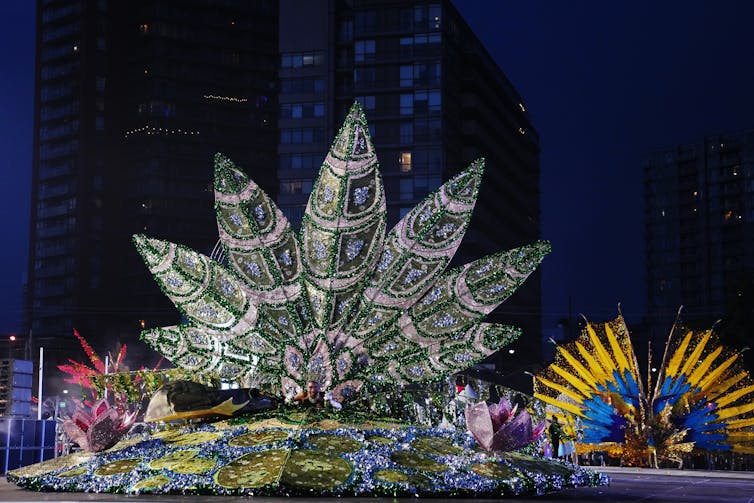
Carnivals and protest
In the post George Floyd era, it is even more important that these issues are acknowledged and tackled head on. One would hope, for example, that event organizers would consider explicitly framing at least some of the main events through the lens of what the world learned about anti-Black racism from the Black Lives Matter protests.
On the official TCC website, organizers ask for donations so that the “community and festival” can “continue to celebrate, raise awareness and to resist discrimination and oppression through our original music, masquerade performances, culinary experiences, and other expressions of our Caribbean culture.”
This suggests they understand the TCC can amplify and build on conversations and actions initiated during the protests. Perhaps, too, that phrasing on the website could mean an openness to embracing social critique and protest, which are hallmarks of Caribbean carnivals in other locations, such as in Trinidad and Tobago.
Carnival celebrations born out of resistance to, and which mark emancipation from, chattel slavery have long been part of the cultural experience of Caribbean peoples. Carnival traditions in the Caribbean have also long found a balance between creating a spectacle and being socially responsive, between being celebratory while also unafraid of challenging the status quo.
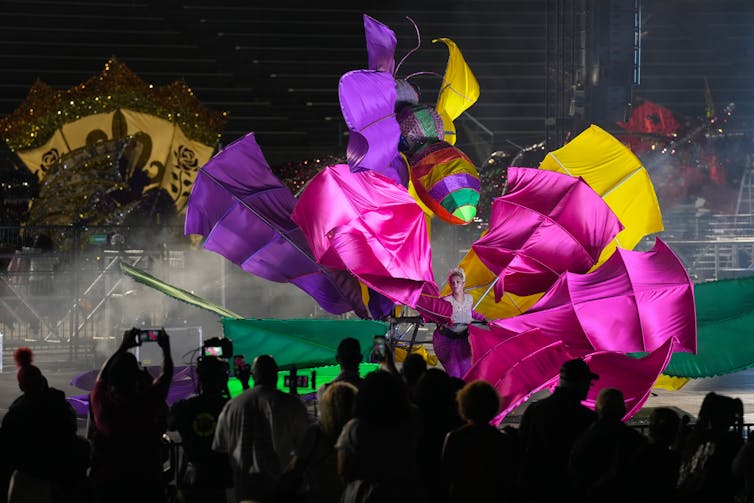
If the carnival’s organizers used its visibility to bring attention to structural and institutional anti-Black racism affecting communities, it would more fully embrace that Caribbean tradition.
So far, though, there’s not much evidence of such explicit framing. It would be a seriously missed opportunity if the 2023 festivities came to an end without engaging with the ways the community is affected by anti-Black racism.
Raising awareness
This 56th year of the TCC is kicking off on the 10th anniversary of the Black Lives Matter (BLM) movement. This is only the second year, too, that the TCC’s main events overlap with Emancipation Day.
Emancipation Day, observed on August 1, was made official in Canada in March 2021 in the wake of the BLM protests. The day offers Canadians an occasion to learn about Canada’s history of enslaving Black and Indigenous Peoples and better understand how racism continues to impact communities today.
TCC dates also coincide with Simcoe Day, which is observed in remembrance of the 1793 anti-slavery act.
So, if there was ever a time for the TCC to lean into its social commentary and protest roots, that time is now.
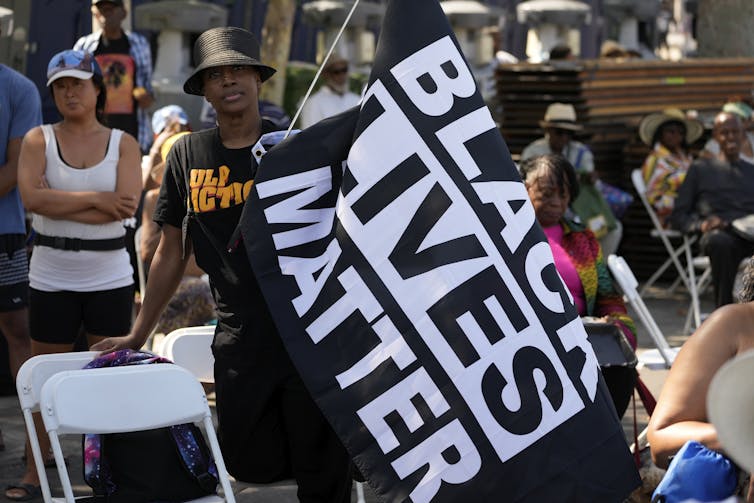
As someone who belongs to the Caribbean diaspora in Toronto, something I would like to see happen with the TCC is more overt critical engagement on the part of organizers, mas bands, masqueraders and performers with anti-Black racism and other types of social injustice and inequity in Canada.
For masqueraders, that could mean choosing to play mas in ways that are more reminiscent of what people in the Caribbean call ‘ole mas.’ Bands could facilitate this socially- and politically-engaged mas by creating appropriate costumes and play scenarios for their band members.
Organizers could program events that promote greater awareness about the history of Caribbean carnivals. These could be public lectures, workshops and exhibits that take advantage of the reach and accessibility of virtual forums. Organizers could encourage greater engagement by artists and content producers with social events and topics, especially ones that concern Black and Caribbean Canadian communities.
They could also be more proactive about how corporate sponsorships and the growing commercialization of TCC events can be harnessed to benefit Caribbean and Black communities in Toronto.
The spotlight this summer on a post-pandemic, post-BLM iteration of the TCC could also help reignite productive public discussion about the policing of Black communities in Toronto.
The TCC’s history with the police has not always been comfortable. Toronto’s police force has repeatedly demonstrated over the years that it makes a problematic association between large gatherings of Black and other people of colour and public acts of violence.
Efforts have been made in recent years to address this, especially at the Grand Parade. News coverage of the 2023 carnival observed that “In a departure from previous years, the Toronto Police chief was notably absent from the launch event, with only Black auxiliary officers seen near the stage.” But there is still a lot of work to do around changing how police interact with Black communities.
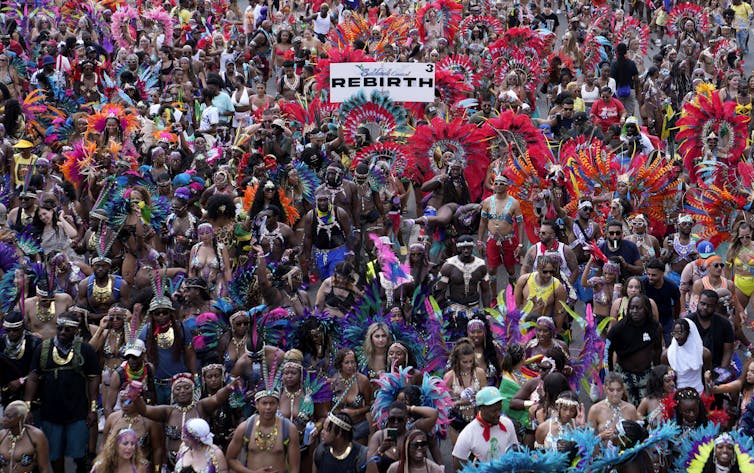
Helping Black businesses
The TCC is arguably Toronto’s biggest and most visible Black-owned business. But while various businesses in the city — hotels, restaurants, entertainment venues, cultural attractions and landmarks — benefit financially, that has not been the case for many Black businesses, especially small ones.
The increasing commercialization of the TCC, such as big brand sponsorship of the bands and the trucks that accompany them along the Grand Parade route, is a significant part of this problem.
Current funding structures, and “business as usual” approaches exemplify how Blackness can be co-opted to serve corporate interests while Black communities are shut out of the benefits and profits. It’s Blackness on display — and only when such display is profitable — with little to none of this profit going to Black communities.
The City of Toronto and the TCC could demonstrate commitment to addressing anti-Black racism by rethinking the carnival’s financial participation and profit distribution models to benefit Black-owned businesses and communities.
There are already organizational structures in place for facilitating this. For example, the Festival Management Committee’s Building Black Entrepreneurs Program which has received funding from the federal government’s Black Entrepreneurship Program. There’s also the City of Toronto’s Confronting Anti-Black Racism unit.
The Festival Management Committee, the City, TCC community stakeholders, partners and sponsors as well as the larger public need to have these conversations. Until then, simply focusing on jumping, waving, wining, feting and playing does a disservice to the true spirit of Caribbean carnivals.![]()
Hyacinth Simpson, Associate Professor, Department of English and Interim Director, Dimensions Program, Toronto Metropolitan University
This article is republished from The Conversation under a Creative Commons license. Read the original article.

